It was 1991 when the future Vice President of the United States, Al Gore, coined the term “information superhighway” to refer to an incipient technology that was already known as the Internet.
Few could glimpse the dimensions that technology was going to reach.
It took two decades for modems and routers, the devices that allowed this connection to the Internet, to be considered part of the furniture of houses and offices.
When will we see everything around us being connected to the internet as normal?
That is the scenario of the Internet of Things, one in which everything could be communicated through the Internet.
Everything could be potentially susceptible to being attacked.
Idyllic privacy on the Internet of Things and without things
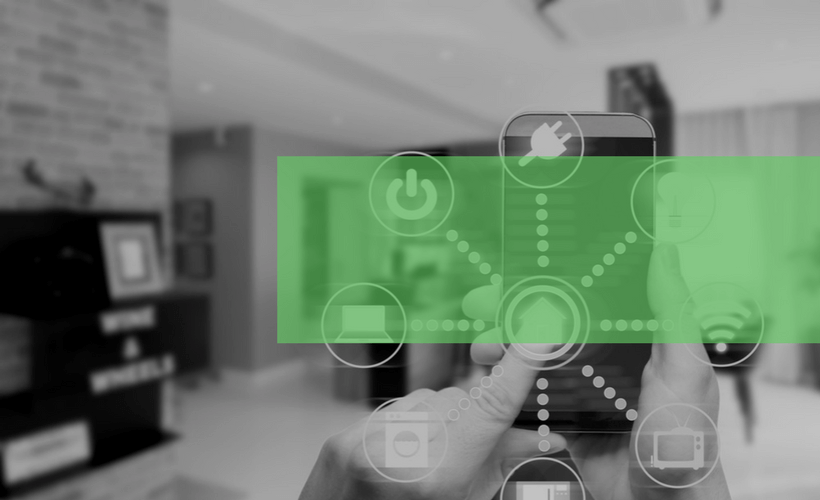
Every time we surf the Internet we leave a trace.
Luckily there is more awareness of this, although the reality is that you don’t need to surf the Internet to generate a trace. You just need an electronic device in your pocket that is connected to the Internet so that the trace is generated in the background.
On the Internet of Things, the trace will be bigger.
The devices connected between them and through the Network will be able to understand what the user wants, and also anticipate our needs.
The technological companies which are developing the Internet of Things are faced every day with the challenge of sensorizing the objects that will shape the future scenario without sacrificing two fundamental characteristics for the user: simplicity and usability.
In this story, sensors are the key. They unite the physical world with the digital one. They make the information that the object captures in real life go digital.
It has always been said that the goal of technological advances is to make life easier for a human being, although what is gained on the one hand turns out to be a problem for the other.
With the Internet of Things, we will gain decision-making capacity. We will have real information collected by the sensorized objects that we will use every day. We will have the opportunity to be more effective, as long as we interpret the data well.
But we can not ignore the less friendly face of technology: that information that will give us the freedom and precision to make decisions is also the one that will put in danger our right to privacy.
An easy but controlled life with the Internet of Things
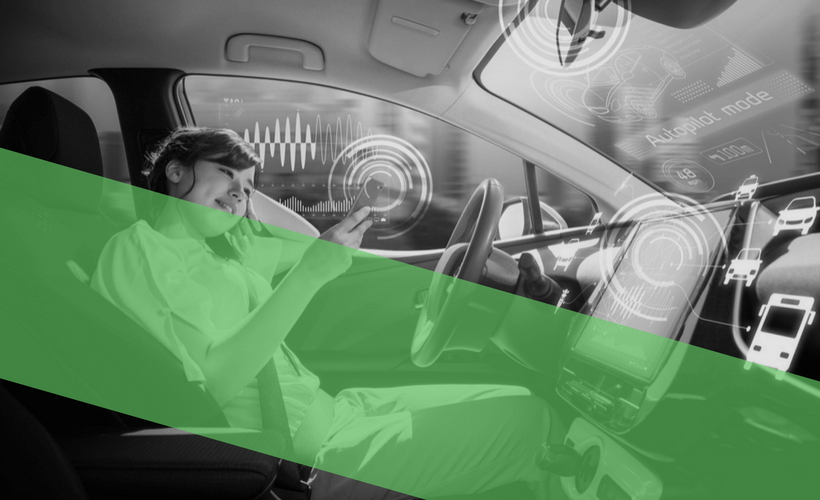
Taking into account the current state and use of the Internet, when everything that surrounds us is part of the Internet of Things, our privacy won’t be manageable, and therefore it will be non-existent for users.
Technology companies such as Facebook, Amazon or Twitter are, in other words, large corporations to which we send personal information daily about how we feel, what we need or what we plan to buy; with whom we relate or what we think about certain topics.
Personal data easily becomes money and power.
Therefore, these same companies, among many others, are focused on developing products that make up the Internet of Things: Alexa from Amazon, Google Assistant from the Mountain View company and now Aura from Telefónica.
All these voice assistants will obey orders as soon as we equip our spaces for these devices. Although we are still far from it.
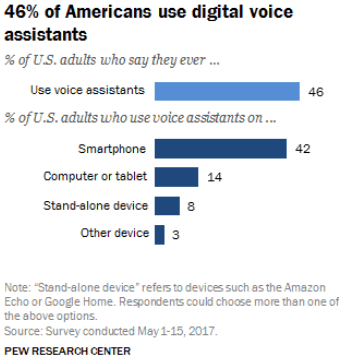
In America, which are usually early adopters of this type of technology, the use of voice assistants is high as of May 2017, but it is still through a smartphone. Source: pewresearch.org
Can we aspire to have privacy with the Internet of Things?
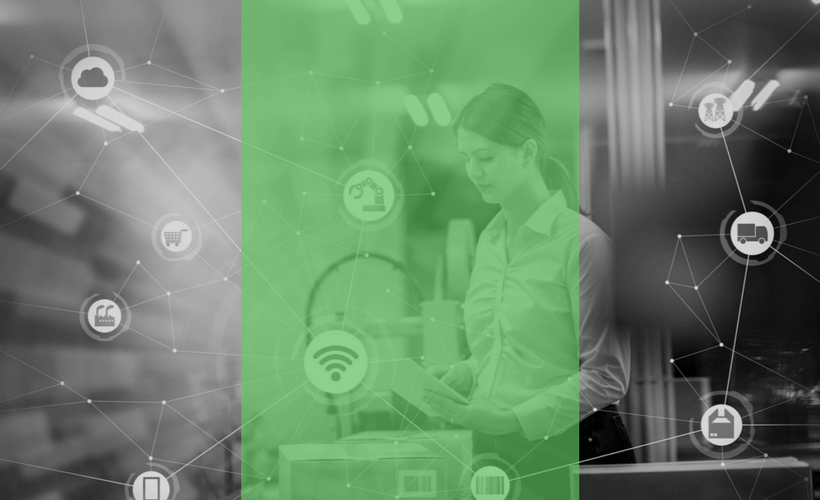
In an interview with El País Retina, Maciej Kranz, vice president of innovation strategies at Cisco, states that “70% of cyber attacks in IoT are due to the fact that the objects are damaged or outdated. The most important thing is to be up to date”.
Based on this statement, let’s imagine a scenario extrapolating a piece of recent news.
Recently, Facebook broke the scandal by allowing a consultant to obtain data from users of the social network.
At first, this situation occurred with the excuse that the information would be used for academic purposes, having limited this data collection to 300,000 users.
Today we know that those responsible for taking this data ended up using it to make political campaigns through the network in favor of Brexit and to support Donald Trump’s campaign on his way to the Presidency of the United States.
Leaving aside this scandal, it is known that Mark Zuckerberg invests much of his time in creating Jarvis, a technology that combines voice assistance with artificial intelligence, so he describes it as a “virtual butler”.
As explained by the CEO of Facebook in a post, Jarvis is able to turn on the lights of the house, regulate the thermostat or put on music that is asked for, one of the tasks that turned out to be the most complex.
What if there was a Jarvis in each house? Possibly we will have to keep it updated to avoid attacks, as understood in the statements of Kranz.
What if to use certain functions of Jarvis we had to connect to it through a smartphone, for which we also have registered a Facebook account?
What if the data that Jarvis manages about the privacy of our home falls into the hands of a company that intends to use the data of users for their own benefit, or worse, to change the political and social direction of a country ?
Maybe it’s a bizarre scenario, but it’s the place we have to imagine to be able to demand levels of security in applications and devices; a data protection that avoids the irreversible damage of the revelation of personal data, and ultimately, legislation that puts the interests of the users before any company and institution.
- The keys to get the ISO 27001 certification - November 14, 2019
- Managed Security Service – MSSP - October 23, 2019
- DDoS Attacks – An In-Depth Guide - September 12, 2019





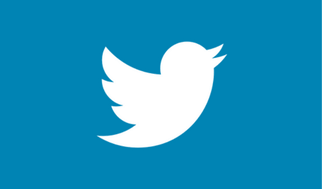
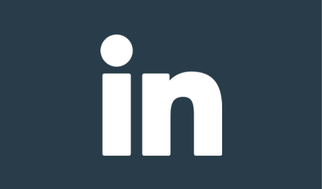
Comments are closed.